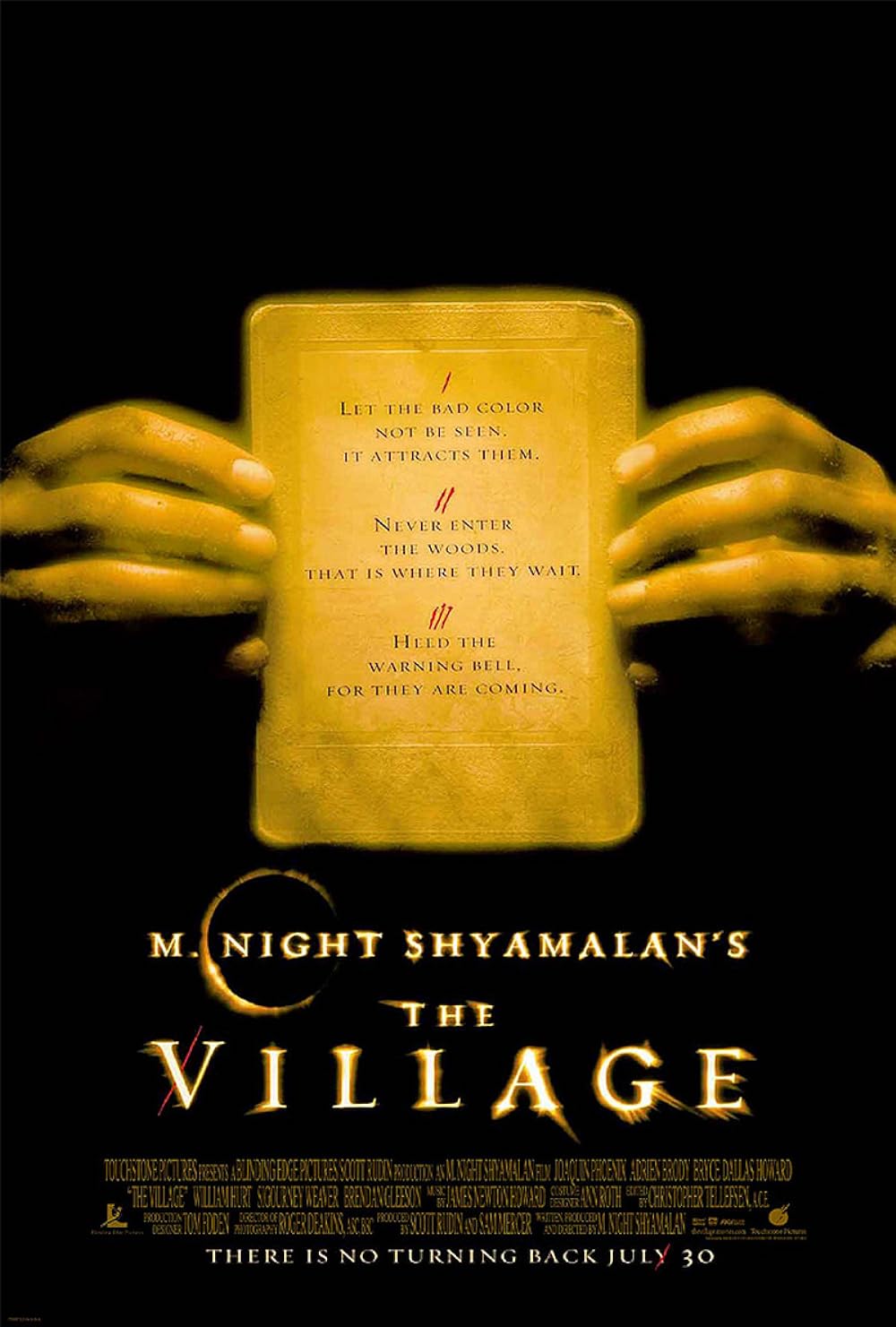M. Night Shyamalan’s The Village is a psychological thriller that delves into themes of fear, faith, and the fragility of human society. Set in a secluded 19th-century community, the film weaves a tapestry of suspense, mystery, and ultimately, a shocking revelation.
A World in Isolation
The film introduces us to a quaint, idyllic village seemingly untouched by the modern world. The inhabitants live in harmony, governed by a strict set of rules designed to protect them from the terrifying creatures that lurk in the surrounding woods. The villagers, led by the enigmatic Elder Edward Walker (William Hurt), are bound by a shared belief in their isolation and vulnerability.
At the heart of the story is Ivy (Bryce Dallas Howard), a young woman with a rare eye condition that prevents her from venturing outside the village. Her relationship with the charismatic and rebellious Lucius Hunt (Joaquin Phoenix) forms a central emotional core of the film, as they grapple with the limitations of their world and the allure of the unknown.
The Weight of Fear
Shyamalan masterfully creates a palpable atmosphere of fear and paranoia. The villagers’ constant vigilance, the eerie silence of the woods, and the ominous tales of the creatures beyond create a sense of dread that permeates the entire film. The color red, a symbol of danger and forbidden knowledge, is meticulously avoided, further emphasizing the community’s isolation and fear.
Unraveling the Mystery
As the plot progresses, cracks begin to appear in the village’s idyllic facade. The death of a young villager, coupled with Lucius’s growing skepticism, leads to questions about the true nature of their existence. The film gradually unfolds a series of revelations, challenging the audience’s perceptions of reality and the characters’ motivations.
The Twist Ending
Shyamalan’s signature twist ending is undoubtedly the most talked-about aspect of The Village. While it has been a subject of both praise and criticism, it undeniably serves as a catalyst for re-evaluating the entire narrative. The film’s exploration of themes such as faith, hope, and the power of belief takes on a new dimension in light of the shocking truth.
Visual and Sound Design
The film’s visual style is both haunting and beautiful. The cinematography captures the isolated beauty of the village while also creating a sense of foreboding. The use of color, particularly the absence of red, is a powerful visual motif that reinforces the film’s themes.
James Newton Howard’s score is a masterpiece of atmospheric music, contributing significantly to the film’s suspenseful and melancholic tone. The score’s haunting melodies and eerie undertones perfectly complement the on-screen action.
Critical Reception and Legacy
The Village received mixed reviews upon its release. Some critics praised the film’s atmosphere, performances, and thought-provoking themes, while others criticized the plot twists and pacing. However, the film’s impact on popular culture is undeniable. It sparked numerous discussions and debates about the nature of reality, the power of belief, and the human condition.
Shyamalan’s decision to explore psychological horror and suspense in The Village marked a departure from his earlier, more supernatural-focused films. While the film may not have achieved the same level of critical acclaim as The Sixth Sense, it remains a significant work in his filmography and a testament to his ability to craft complex and thought-provoking narratives.
Conclusion
The Village is a film that lingers in the mind long after the credits roll. It is a study of human nature, exploring the complexities of fear, faith, and the search for meaning. While the film’s ending may be divisive, it undoubtedly invites viewers to question their own perceptions and to consider the power of the human mind.
